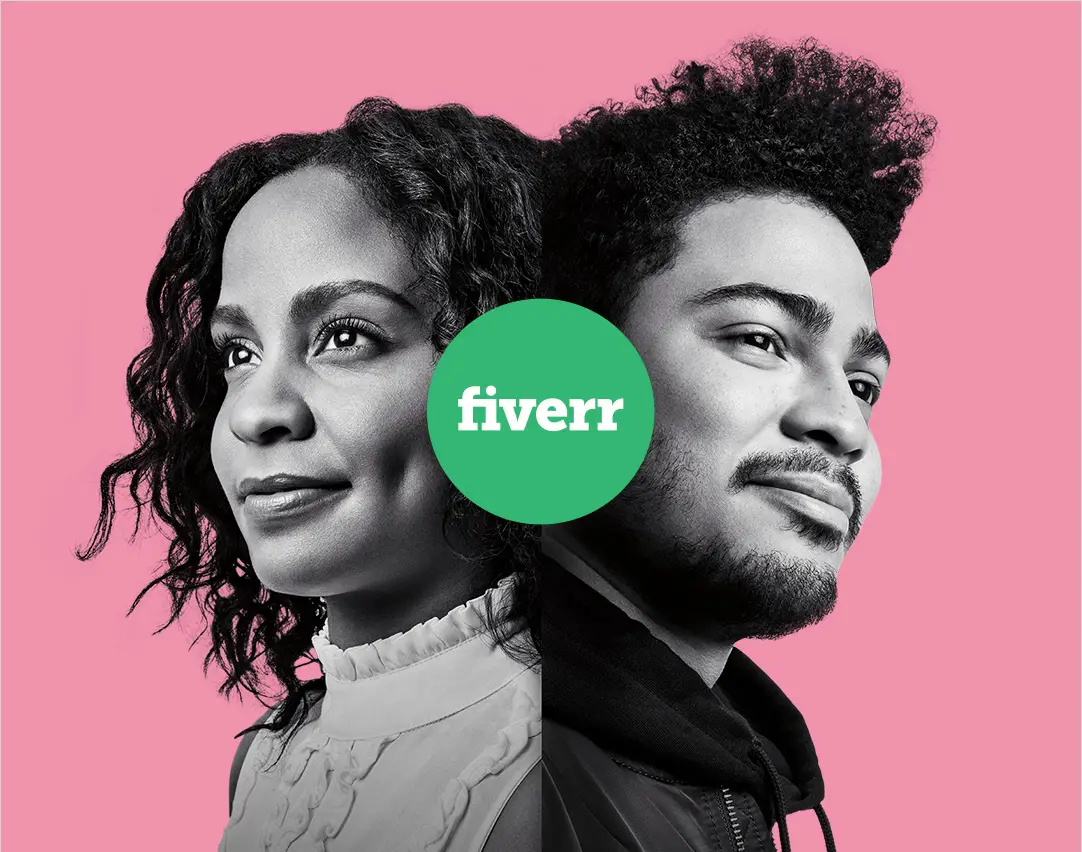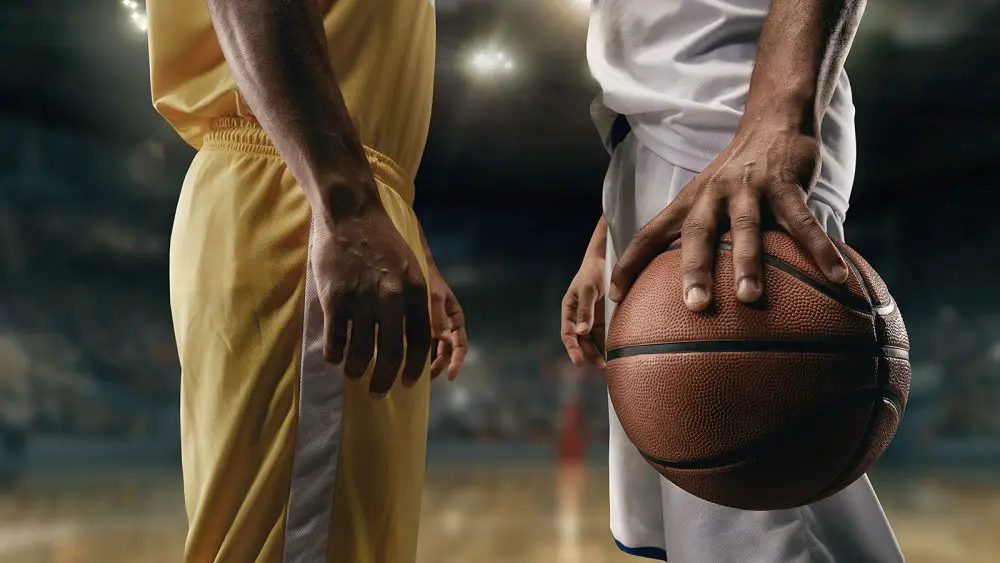|
There is no age limit on dating or falling in love, and no matter how old you are, the desire to find that someone special still remains. The main thing is to stay hopeful, and to put yourself out there. Many people come to dating much later in life either because they have been divorced, bereaved, or because they spent more time curating a career and not romance. But people aged 50 and older often have a stronger likelihood of success than their younger counterparts for a number of reasons. You know what you want. Young people have lots of big plans and grand ideas, but it isn’t until later in life that we really work out what is important to us. Flashy clothes and status are only temporary and not essential for healthy, happy relationships. You realize that personal qualities such as generosity, respect, and kindness are actually the things that will last long after all the glitz and glamour have faded and ensure that the relationship will give a lifetime of happiness rather than a season of fun. You know yourself.
Part of the reason that young people can find it difficult to settle in relationships is because they are still unsure of who they are, what their values are, or what they want to do with the time they have. We’re fortunate to have reached a stage of life when we’re more than comfortable in our own skin. You’re emotionally mature. Many people don’t mature emotionally at the same rate as they do physically. The ability to be objective, to see something from someone else’s point of view, to respond to facts rather than being overwhelmed by feelings, are all skills that improve with age. You value life. By the time we reach our 50s, most of us have lost someone close to us — parents, other relatives, and maybe even friends. The experience of loss often has a very grounding effect on our personalities, becoming less likely to take people and things for granted. This can make us more open minded that a relationship doesn’t have to be perfect in order for it to be happy and fulfilling. You’ll live longer. Not only are you never too old to date but dating can also help you reap the benefits of a long life. Studies have found that love helps to keep your heart healthy, your blood pressure down, and gives you more emotional resources to overcome challenges, because people who have someone special in their lives are often more motivated.
0 Comments
 BY GEOFFREY JAMES, CONTRIBUTING EDITOR, INC.COM Musk is as innovative a management theorist as he is an inventor and business owner. Who knew? Elon Musk is best known as an innovator, business owner, visionary, and bon vivant. What gets lost in that public image, though, is that he's a management theorist. Musk seems to approach running a business much as he'd approach a complex engineering project: Figure out what works and do that, even if it doesn't make sense to anyone else. About a year ago, Musk wrote an email to his employees at Tesla that neatly encapsulated his thoughts about management and corporate culture. I've written about parts of that email previously but only recently realized that, in 11 short rules, Musk laid out, well, basically everything you need to know about management. Here's my edited version:
Now, I've heard and given some of that advice before (notably, numbers 4, 6, and 9), but the remaining eight points are not only highly original, they're also "cut the Gordian knot" solutions to the knottiest problems that plague most companies. Seriously. As an author and reviewer of business books, I'm pretty aware of what turns up in that kind of literature. Management theory hasn't changed in 50 years. I haven't seen or read anything really new in terms of management technique for, gosh, at least the past two decades. So here's Elon Musk--boom!--slapping 11 techniques, of which eight are 100 percent original and iconoclastic. This tour de force is as amazing in its own way as the successes of Tesla and SpaceX; more amazing, maybe, because those successes might have been possible only because Musk rethought how companies should be run. Anyway, publishers send me business books to review and I've built up quite a library of "to read" volumes. After reading Musk's letter, though, I looked up at that shelf and thought to myself: Why bother? I could read that entire library and not get as much true business wisdom as Musk crammed into a single email. So I threw the books into a crate and carried them out to the recycling bin. If you have a skill set that people need you could become a freelancer. Anything from proofreading to copywriting to graphic design and even photo editing are options to explore. Freelancer.com is the world's largest freelancing and crowdsourcing marketplace by number of users and projects. They connect over 44,473,816 employers and freelancers globally from over 247 countries, regions and territories. Through their marketplace, employers can hire freelancers to do work in areas such as software development, writing, data entry and design right through to engineering, the sciences, sales and marketing, accounting and legal services. Register as a freelancer and start earning. Click Here to claim a $20 gift from Bergen Review Media just for creating a Freelancer account. Become a FIVERR freelancer.Become a FIVERR freelancer. Create a Gig of the service you’re offering and start earning instantly CLICK HERE
Sports are not just for pleasure. When we watch with a discerning eye, sports willingly give us the tools and assets we need to build our lives to win at whatever we pursue. I look at our core values structures. In basketball, we need to look no further than LeBron James to see a fierce competitor who always gives his best. These Winter Olympics, we’ve seen grit and perseverance personified by athletes like Japanese figure skater Yuzuru Hanyu and skier Marit Bjoergen of Norway.
Each day we’re immersed in situations that provide definition and clarity to our lives — enabling us to see parts that we can add to make our own, becoming the sum of who we truly want to be. It’s the kindness that we show to a stranger, allowing them on the subway first. It’s gratitude shown to a daycare worker who puts the needs of your child before their own. We see love and commitment in the world around us. Our prism to see this is amplified in magnitude when viewed through the paradigm of sports. I’ve coached basketball for six years, and it’s been among the most rewarding experiences of my life. I’ve learned about positive attitude, hard work, and discipline, all values that appear in my book, The Value of You. These values and lessons are not just fundamentals for living a successful and happy life, they will transform your way of thinking and lead you to magnificent opportunities and relationships. Few movies have had as profound an impact on me as the classic, Hoosiers. It came out when I was just a kid, though as I began to play the game of basketball, I saw its wisdom in how I created my makeup and approach to the game. I realized that even in sports, it’s so much more about the mental, emotional — and even spiritual — makeup we have. As I got older and became a business coach, sports coach and professional, I understood why so many of the lessons from this movie resonate with millions today. I’ve listed out seven parts of Gene Hackman’s legendary locker room speech to his team prior to the state semifinal game. I’ve broken each part down by the true message he aims to convey. Its wisdom and lessons are practical for all of us. They’re filled with great guidance you can deploy in your life — no matter your profession or where you find yourself trying to go. I hope you find this rewarding on your journey! 1. “There’s a tradition in tournament play to not talk about the next step until you’ve climbed the one in front of you.”Focus on the task at hand. Immerse yourself with maximum effort and a positive attitude in that one moment. I encourage you to make goals, dream big and focus on the task at hand. Don’t concern yourself with all the next steps when you’re there in the trenches working on the task at hand. 2. “I’m sure going to the State finals is beyond your wildest dreams, so let’s just keep it right there. ”We all dream, imagine and realize that the moment of standing in the winner’s circle will be exhilarating and triumphant. This is what we work for. And yet, if we concern ourselves with this too much while we’re in the moment — on our journey — we fail. We get nervous. The best way to keep your nerves in check — and succeed — is to focus on the process. 3. “Forget about the crowds, the size of the school, their fancy uniforms, and remember what got you here. ”Forget about all the glittery things — frankly the things that don’t really matter. Especially when you’re competing for something, focus on doing the job to the best of your ability. The more you progress in life, the more important it is to keep moving forward. Yet, it’s just as important to remember all the great things you’ve done to lead you to where you are today — standing as a proud man or woman of accomplishment. Closer to your dream. 4. “Focus on the fundamentals that we’ve gone over time and time again. ”Plain and simple — focus on your values. Focus on the fundamentals that serve as the foundation for you to live the life you want — on your terms. 5. “And most important, don’t get caught up thinking about winning or losing this game. “Don’t worry too much about the result. Rely on all of the preparation, values, planning and being yourself to do your best. I’ve read how college basketball coaching great, Jay Wright doesn’t even talk much about winning and losing. On your journey, focus on building yourself up to who you truly desire to be. The dreams and visions implanted in your heart and mind will suffice and permit you to move forward at the pace you desire. 6. “If you put your effort and concentration into playing to your potential, to be the best that you can be, (and) 7. I don’t care what the scoreboard says at the end of the game, in my book we’re gonna be winners! ”Hard Work. Focus. Competitive Greatness. Dedication. Devotion. Maximizing your potential. And again, if you focus on the task at hand, do your absolute best without worry, you’re going to always end up a winner. Regardless of whoever is keeping the official score. You will always win when you define success, create goals and then work for them with a values-based, winner’s mindset. Focus on the moment. That moment is really all that matters. Build Your Game Plan to Win.  by Christopher Reynolds for Bergen Review Summer always means water, whether it’s an ocean, lake, river, swimming pool or hot tub. But now that we’re worrying more about germs, it’s natural to wonder: Will this season’s swimming, surfing, floating and soaking be as safe as it used to be? Yes, many experts say. “There is no data that somebody got infected this way [with coronavirus],” said professor Karin B. Michels, chair of UCLA’s Department of Epidemiology, in a recent interview. “I can’t say it’s absolutely 100% zero risk, but I can tell you that it would never cross my mind to get COVID-19 from a swimming pool or the ocean,” said Paula Cannon, a professor of molecular microbiology and immunology at USC’s Keck School of Medicine. “It’s just extraordinarily unlikely that this would happen.” On web pages giving pandemic advice, the federal Centers for Disease Control say, “There is no evidence that the virus that causes COVID-19 can be spread to people through the water in pools, hot tubs, spas or water play areas.” As both professors noted, the chlorine in most swimming pools is enough to inactivate the virus. The U.S. Masters Swimming organization makes the same point in its coronavirus briefing for frequent pool swimmers. As for rivers, lakes and the ocean, experts say there are no known cases of COVID-19 transmission through those bodies of water. Also, the outdoors is understood to pose less risk than indoors because of free air flow. Surfrider Foundation staff scientist Katie Day has written, “Similar coronaviruses [to COVID-19] have been shown to remain viable and infectious, at least temporarily, in natural freshwater environments including lakes and streams.” But researchers say they aren’t sure if it’s possible for humans to contract COVID-19 that way. Even if it was theoretically possible, “I’m not concerned about the ocean and large lakes,” Michels said. “The dilution effect is so humongous that I don’t think there is a risk that anybody gets infected this way.” Said Cannon: “You’d have to probably drink the entire lake to get an infectious dose of the coronavirus.” Some viruses do make their home in fecal matter carried into the sea with other sewage; that’s why Southern California beaches often are closed immediately after rains. But research so far shows that COVID-19’s principal means of transmission is respiratory, not fecal-oral. So far, scientists say, there is no data suggesting that the COVID-19 virus remains viable in saltwater. They’re also not sure if the virus remains infectious once it has been through a human digestive system or a wastewater treatment plant. “The virus really likes being 37 degrees Centigrade [98.6 degrees Fahrenheit] in human saliva. It likes to be warm and wet,” said Cannon. “Obviously, it can survive outside the body, but the clock is ticking as soon as it leaves our body.” In an analysis of fecal matter from several COVID-19 cases in the journal Nature, no samples were found to be infectious. As the Surfrider Foundation noted in a recent briefing for surfers, Kim Prather, Scripps Institution of Oceanography researcher, is working on a National Science Foundation project to look for the COVID-19 virus in sea-spray droplets in coastal waters that receive regular sewage flows. “Clearly, more research is needed on this particular virus,” Prather told L.A. Times reporter Rosanna Xia in April, “to determine whether it loses infectiousness through sewage treatment and exposure to air, sunlight and water.” Rather than worry about coronavirus in water, UCLA’s Michels and USC’s Cannon said, swimmers should stay well separated and take care before and after entering the pool, lake, river or sea. “I would be more concerned about touching the same lockers or surfaces in the changing room or on the benches outside the pool. Those are higher risk than the water itself,” Michels said. “The other thing is you have to maintain distance. … More distance is always better.” At least one other potential threat in the water whose prevalence is confirmed by data: drowning. Long before the pandemic began, the CDC was estimating 10 unintentional drowning deaths per day in the United States. Worldwide, the World Health Organization estimates 320,000 drowning deaths per year. If you’re on your own in a pool, lake or the sea, Cannon said, “You’re way more likely to drown than get COVID.” Habits you should adopt immediately to improve the quality of your life in the next 90 days9/3/2020  by Thomas Oppong for Bergen Review Media Successful people don’t just drift off to the top. Getting there requires focused action, personal discipline and lots of energy every day to make things happen,” says American author and entrepreneur Jack Canfield. Jack couldn’t be more accurate. Don’t let old habits hold you back in life. Take control of your habits and improve the quality of your life. Build a system for everything you do It pays to build systems to keep your life on track. In “How to Fail at Almost Everything and Still Win Big,” author Scott Adams explains: “ … A system is something you do on a regular basis that achieves your odds of happiness in the long run. If you do something every day, it’s a system. If you’re waiting to achieve it someday in the future, it’s a goal.” Systems are the foundations of a better life and great work. Using systems can make your life easier. A system provides you with an inner guidance system and a equip you with the power of habit. A structure in your life and some routines that help you every day and keep you on the right track is better than a single shot at getting something done. Start anything with a clear goal and focus on a system to achieve it. Many people have different successful systems that guide how they work and what actions to take at any point in time to achieve the bigger purpose. If your current system of work doesn’t work or give the desired results you expect, make a change, create a new system and take steps every day to stick to it. By spending a little bit of time figuring out what will work best for you and your habits, you can put yourself in a great position to get out of your head and get things done. Reserving an hour each day for something you absolutely want to get done can be a great system that can help you achieve your big goal. Guardian’s Oliver Burkman says, “…focusing on a system means focusing on what you can control (your actions) rather than what you can’t (the endlessly unpredictable external world). Keep working your system and you’ll maximize the chances that success will find you.” You can start building systems one habit at a time. Focus on incremental progress and consistency to lay the foundation for getting things done. A daily or weekly routine, a consistent application of even small habits, will transform your life more effectively than striving for an overwhelmingly large goal without a consistent routine to achieve it. A better life starts with a great daily routine As simple as it sounds, routines are the key to improving your health, productivity, wealth and total well-being. creating a daily routine can make a big difference in your life. How you start and end your day determines everything. That means, developing a system to guide to guide how you use your time when you awake, when you first start working, when you finish your workday, and even how you use your evenings. How will that change your life? It will help you get a great start to your day, and finish your day by preparing for the next day. It’ll help you build productive routines, and help you focus on what’s important, not just what’s urgent. Make time for high-value work Don’t start your day until you have it planned. — Jim Rohn Spend the first hour of your work day on high-value tasks.Don’t begin the activities of your day until you know exactly what you plan to accomplish. Every morning, get one most important thing done immediately. There is nothing more satisfying than feeling like you’re already in the flow. And the easiest way to trigger this feeling is to work on your most important task in the first hour. Use your mornings for high-value work. Lean to avoid the busy work that adds no real value to your work, vision or long-term goal. Low value activities, including responding to notifications, or reacting to emails keep you busy and stop you from getting real work done. Make time for work that matters. In his book, Getting Things Done: The Art of Stress-Free Productivity, David Allen says, “If you don’t pay appropriate attention to what has your attention, it will take more of your attention than it deserves.” Research shows that it takes, on average, more than 23 minutes to fully recover your concentration after a trivial interruption. Don’t tackle tasks sporadically throughout the day To increase your ability to focus, researchers suggest ideas for both boosting our ability to concentrate as well as reducing distraction. You can improve your ability to focus if you can boost your ability to concentrate. Reducing distractions can change how you work for the better. Everything competing for your attention when you want to single task can waste your precious time. In 18 Minutes: Find Your Focus, Master Distraction, and Get the Right Things Done, Peter Bregman writes, “To get the right things done, choosing what to ignore is as important as choosing where to focus.” Time wasters such as impulsively checking notifications is a major distraction at work. The few minutes you waste on reactive tendencies doesn’t help your work. Learn to single-task without compromise Single tasking changes everything. In an age of constant digital interruptions, it is no wonder you’re having trouble ignoring distractions. If you really have to focus on that task, limit the time you have to spend on any given task. Add dates, and due time to your to-do lists. Push yourself to deliver within the specified time and move on. Single-tasking is one task at a time, with zero tolerance for distractions. Try the Pomodoro Technique to improve your chances of success when you embrace single -tasking habit. Focus on one task for about 30 minutes, then take a 5 minute break, and then move on to another task or continue the task. Read widely, with maximum curiosity Pick up a book every day. Even for just a few pages. Reading puts your brain to work. Reading is to the mind what exercise is to your body. It gives us freedom to roam the expanse of space, time, history, and offer a deeper view of ideas, concepts, emotions, and body of knowledge. Roberto Bolaño says, “Reading is like thinking, like praying, like talking to a friend, like expressing your ideas, like listening to other people’s ideas, like listening to music, like looking at the view, like taking a walk on the beach.” Your brain on books is active — growing, changing and making new connections and different patterns, depending on the type of material you’re reading. One of the best ways to gain knowledge is self-education. Period. It doesn’t matter if you’re sitting in a college classroom or a coffee shop. As long as you are genuinely interested in what you are studying, don’t stop.Make the most of your time and get the best education you can can offer yourself. People who take the time and initiative to pursue knowledge on their own are the only ones who earn a real education in this world. Take a look at any widely acclaimed scholar, entrepreneur or historical figure you can think of. Formal education or not, you’ll find that he or she is a product of continuous self-education. Lifelong learning will get most of your questions answered. You don’t even have to commit long hours everyday to learning. Whatever time you decide to put in your own education, stick to it. What are the most interesting topics you wish to know more about. The goal here is to find as many sources of ideas and knowledge as possible. Brain Pickings is a good place to start. It’s one of my favorites. And it’s free. Go subscribe and you won’t be disappointed. Find other blogs, websites or online courses that can broaden your horizon. Read expert opinions about topics of interest on Quora. It’s a game-changer in the world of question and answer websites. Look for answers to some of your most important questions at places people normally ignore. Cut back on social distractions In the age of constant connectivity, distraction is at its peak in life and at work. Our minds need urgent purification to improve focus, replenish attention, and encourage creativity. The average adult checks their phone 50 to 300 times each day. And we tap, swipe and click on our devices 2,617 times per day, according to a recent study. We spend more time online than we do asleep. Chris Bailey, author of Hyperfocus, writes, “Our smartphones provide an endless stream of bite-sized, delicious information for our brains to consume. It’s easy to get hooked, even to feel addicted. And most of us would prefer not to feel this way.” I have turned off most of the notifications on my phone. I choose when I want to check my notifications. I have consciously planned to check social updates at a set time to avoid distractions when I am doing focused work. Every time you pull out your phone to scan your feeds, your brain is building a habit loop that reinforces itself to encourage the habit. Notifications prompt task-irrelevant thoughts and disrupt attention performance even if you don’t interact with the device. The buzzes, beeps, emails, alerts, and notifications never end until you do something about it. An increasing number of psychologists and doctors are concerned about our relationship with smartphones. “It’s a spectrum disorder,” says Dr. Anna Lembke, a psychiatrist at Stanford University, who studies addiction. “There are mild, moderate and extreme forms.” And for many people, there’s no problem at all. According to David Greenfield, a clinical psychiatrist and founder of the Center for Internet and Technology Addiction, smartphones can easily take over your life, because they’re always screaming for attention. Being constantly plugged in affects our sleep patterns, posture and more in our bodies and minds. Our lives are becoming more wired all the time, hence the need to take over and control your relationship with mobile devices before they become the only thing you deeply care about at the expense of your relationships. If you feel your phone is taking over your life, schedule digital detox on your calendar. Start balancing your digital life with real life. Do a 30-day challenge The challenge most of us have is starting and sticking to healthy and productive daily routines. You can start with a 30-day challenge to develop the perfect routine that works for you. What do you want to improve. Write them out on paper, along with your motivations, obstacles, and strategies for overcoming them. Start with a few habits you can consistently focus on building. Report on your progress each day. Adjust anything that is not working on a case-by-case basis. Then do an assessment after 30 days to see how your new routine is working for you. If you fail, figure out what went wrong, plan for it, and try again. You don’t always have full control over your workday, but you can plan and make the most of your day to help you accomplish your life and work goals. You can use them to make sure the most important stuff gets done — from working out, to spending time with friends and family, to developing a side business, to reading and engaging in other hobbies. Dig deeper If you enjoyed this post, you will love Postanly Weekly, my free weekly digest of the best posts about behavior change that affect health, wealth, and productivity. Join over 50,000 people on a mission to build a better life. Courses: Thinking in Models, and Kaizen Habits. This article first appeared on Medium. |
Written, Compiled & Edited byThe Bergen Review Media Team Archives
April 2024
Categories
All
|
|
Bergen Review Media is a
WebClientReach, llc Company |
50 East Ridgewood Ave. #215
Ridgewood, NJ 07050 Phone: (201) 948-5500 |
The Bergen Review is Bergen county's concierge for the best businesses, restaurants & venues in New Jersey. Our agency has a combined total of over 15 years experience in online media and marketing. Our team of experts scour every nook and cranny of New Jerseys best businesses, restaurants & venues to present to our clients the full scoop of where best deals & experiences are. Even after researching & looking at reviews, finding the REAL scoop on what Businesses, restaurants or venues best fit your interest can be a challenge. Bergen Review Media has a team that researches & visits various establishments. Making sure the consumer gets the best experience.
|
Website by Bergen Review Media








 RSS Feed
RSS Feed






